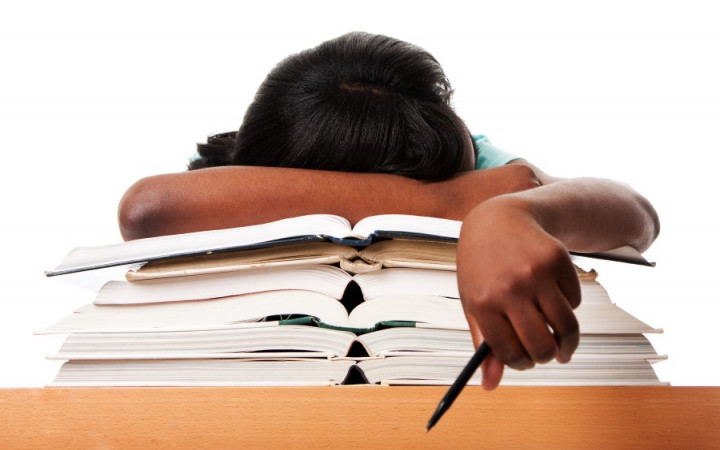Today’s Wonder of the Day was inspired by iris from Arcadia, CA. iris Wonders, “Why we were so tired, when we woke up? ” Thanks for WONDERing with us, iris!
*Yawn!* Your alarm goes off and you roll over, desperately searching for the snooze button. Nine more minutes of sleep sound like just what the doctor ordered. Those precious minutes pass and the alarm sounds again, waking you from your peaceful sleep.
As you roll out of bed, your feet hit the floor and you stumble into the first step of your morning routine. Only half-awake, you WONDER how you could feel this tired after a full night of sleep. What's going on here?
Have you ever felt that way? You wake up after sleeping all night long, only to feel just as tired as you felt when you went to sleep the night before. Why is it that we sometimes wake up feeling like we just need to go back to bed?
If you've felt this way before, don't worry. You're not alone. It's actually quite common for people to feel tired in the morning after sleeping all night. The problem? You're not getting quality sleep.
There are a multitude of things that can lead to poor quality sleep. To start, you need to examine the quantity of sleep you're getting. While eight hours per night is a general guideline that many people go by, some people — especially children — need much more than eight hours of sleep per night.
Even if you get enough sleep, there might be other factors affecting the quality of your sleep. For example, some people have a medical condition called sleep apnea that affects the way they breathe. People with sleep apnea often experience frequent sleep interruptions that can leave them feeling exhausted when they wake up in the morning.
Environmental factors can also affect your sleep quality. If it's too bright or too warm in your bedroom, you may toss and turn, trying to get comfortable. Likewise, drinking caffeine or eating too much late at night can make falling or staying asleep difficult.
Another important factor in poor sleep quality may surprise — and disappoint — some people. Do you have a pet that sleeps with you? While they may be snuggly and comforting, pets in bed tend to move around and make noises that can disturb sleep patterns multiple times throughout the night.
Exercise can also play a role. While exercise will generally help you fall asleep faster and stay asleep longer, it's important to best to exercise early in the day. Exercising too late in the evening can actually supercharge your body to the point that it's difficult to fall asleep.
If your sleep problems aren't physical, then they could be mental. Experts have found that stress, anxiety, depression, and boredom can all lead to poor-quality sleep and low energy levels. Identifying such problems can help you to work toward solving them, which will eventually help you sleep better.
Want to wake up feeling rested? Get plenty of hours of quality sleep and eliminate the sleep disturbances we've discussed. Keep pets out of your room, turn down the thermostat a few notches, and make your bedroom as dark as possible. Avoid caffeine and foods late at night and exercise early in the day. You'll be surprised at how much better you feel when you wake up!




